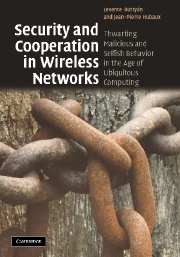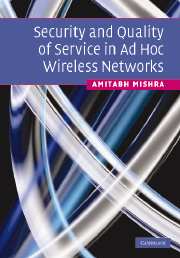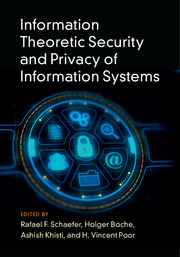Security and Cooperation in Wireless Networks
This is the first self-contained text to consider security and non-cooperative behavior in wireless networks. Major networking trends are analyzed and their implications explained in terms of security and cooperation, and potential malicious and selfish misdeeds are described along with the existing and future security techniques. Fundamental questions of security including user and device identification; establishment of security association; secure and cooperative routing in multi-hop networks; fair bandwidth distribution; and privacy protection are approached from a theoretical perspective and supported by real-world examples including ad hoc, mesh, vehicular, sensor, and RFID networks. Important relationships between trust, security, and cooperation are also discussed. Contains homework problems and tutorials on cryptography and game theory. This text is suitable for advanced undergraduates and graduate students of electrical engineering and computer science, and researchers and practitioners in the wireless industry. Lecture slides and instructor-only solutions available online (www.cambridge.org/9780521873710).
- Covers techniques for protecting against hacking, and for cooperation in multi-hop and ad hoc networks
- Covers the fundamental issues encompassing the full breadth of security in wireless networks
- The tutorial nature of the book makes it more user-friendly
Reviews & endorsements
'This novel book anticipates new challenges in upcoming wireless networks. These challenges are related to human behaviour, the root of all security issues. … Security and Cooperation in Wireless Networks achieves its goal of explaining how to prevent malicious and selfish behaviour. It is a well written book that can serve as an inspiration for future research. Therefore, we can wholeheartedly recommend this book most of all for postgraduate students and lecturers, but also for researchers working in the filed of wireless security.' IEEE Communications Magazine
Product details
November 2007Hardback
9780521873710
496 pages
254 × 179 × 28 mm
1.136kg
140 b/w illus. 80 exercises
Available
Table of Contents
- Part I. Introduction:
- 1. The security of existing wireless networks
- 2. Upcoming wireless networks and new challenges
- 3. Trust assumptions and adversary models
- Part II. Thwarting Malicious Behavior:
- 4. Naming and addressing
- 5. Establishment of security associations
- 6. Securing neighbor discovery
- 7. Secure routing in multi-hop wireless networks
- 8. Privacy protection
- Part III. Thwarting Selfish Behavior:
- 9. Selfish behavior at the MAC layer of CSMA/CA
- 10. Selfishness in packet forwarding
- 11. Wireless operators in a shared spectrum
- 12. Secure protocols for behavior enforcement
- Appendices: A. Introduction to cryptographic algorithms and protocols
- B. A tutorial on game theory for wireless networks
- Bibliography
- Index.






